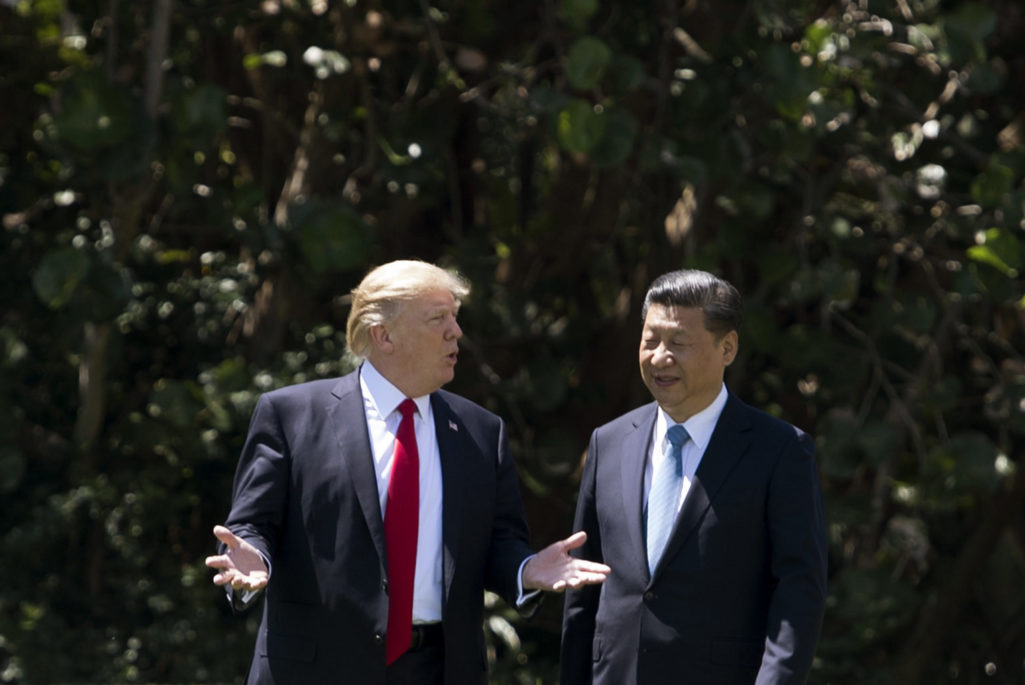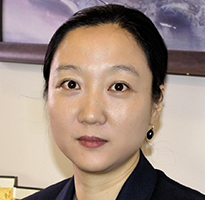The Changing Tides of U.S.-China Relations?

US President Donald Trump (L) and Chinese President Xi Jinping (R) walk together at the Mar-a-Lago estate in West Palm Beach, Florida, April 7, 2017.
Photo: (Jim Watson/AFP/Getty Images)
Four months into his administration, the single-minded China strategy outlined by United States President Donald Trump in the campaign rhetoric of a heated presidential election cycle has given way to the vagaries of complex diplomatic reality.
Despite what looked like a collision course set for the U.S. and China early in the Trump administration, owing to initial instability and uncertainty, the bilateral relations seem to have evened out and taken a turn for positive, resulting in cooperative interactions concerning not only security issues, but trade as well.
During the election season, although the Chinese were not expecting Trump to win the 2016 election, they were quite open about their preference for a Trump presidency.
Their favorable feeling toward Trump was primarily motivated by the perception that he is a shrewd businessman and that his pragmatism and transactional approach would prove beneficial to a practical China that loves to make deals. China has always felt antagonized by the U.S. adherence to principles, such as on political systems and human rights. China is not afraid of making deals; China is afraid of the U.S. refusing to make deals.
Rough Seas Early On
The transitional period before Trump’s inauguration rattled the Chinese significantly. In an apparent attempt to test issues he could push or “make deals” on, President-elect Trump had a phone call with the president of Taiwan, Tsai Ing-wen, and said that the U.S. “One China” policy was negotiable. This is the one issue that China could not negotiate and any attempt by the U.S. to change its “One China” policy could generate major repercussions, including potential military conflicts. Between January and early February, the outlook for U.S.-China relations under Trump was tension-filled.
It is difficult to tell what changed President Trump’s mind on China. Regardless of the reason, what people have witnessed since the early months of Trump’s administration is a dramatic recalibration and adjustment of policy toward China.
In terms of top-level exchanges, this was first demonstrated during the Mar-a-Lago Summit between President Xi Jinping and President Trump in early April. The two-day summit is said to have built the personal chemistry between the two leaders and the interactions were open, honest and genuine. For example, the two rather short one-on-one meetings between Xi and Trump in the original schedule were extended much longer due to their lengthy conversations.
Chinese and U.S. leadership seem to have set a general tone of cooperation between the nations, avoiding a clash.
Although the Summit itself did not render much in terms of actionable outcomes, the two leaders seem to have set a general tone of cooperation between the U.S. and China, rather than compete and clash with each other. The effect has been immediate and concrete. China has rapidly taken steps to put more pressure on North Korea, including, but not limited to, the suspension of Air China flights to Pyongyang and a rumored reduction of oil supply. These moves, combined with China’s suspension of North Korean coal imports earlier this year, culminated to what some might call the first serious attempt by China to pressure North Korea over its nuclear provocations. The Chinese measures directly supported Trump’s stance on North Korea. Against many experts’ predictions, North Korea did not conduct another nuclear test in April.
The Ship Begins to Right Itself
After Trump recommitted himself to the “One China” policy during a phone call with President Xi in February, the contentious issue of Taiwan appears to have been largely shelved between the two countries. More surprising is perhaps the Trump administration’s apparent complacency toward China’s assertive moves in the South China Sea, to the extent that it has not conducted any freedom-of-navigation operations in the South China Sea to date. Former President Barack Obama’s “Rebalancing to Asia” strategy is hardly mentioned. Trump’s policy on these two issues has played a main role in stabilizing U.S.-China relations and creating positive interactions between the U.S. and China, for the time being.
The positivity is also reflected on the trade front. Merely one month after the Mar-a- Lago Summit, the two governments released a list of 10 issues of agreement as the early harvest results of the 100-day trade negotiations decided at the summit. The agreed-upon issues include opening the Chinese market to American beef, taking measures to grant licenses to American electronic payment service providers in China, as well as American export of natural gas to China. The true commercial significance of these trade deals remains to be tested, yet the positive momentum for the two sides to cut deals seems on its way.
Is this good news for America? The answer requires more soul-searching than a mere “yes” or “no.”
A New Horizon?
Is the U.S. willing to share global leadership with China, a country that does not subscribe to democratic values or a belief in a liberal global order? If we are not, how then do we contain the rise of China?
If we choose to contain a rising China, do we have the means and resources? If we do, do we have the willingness to use such resources to confront China on the world stage?
People have criticized Trump for his simplistic view of China and thinking that the problems between U.S. and China can be solved by mere transactions, while the fundamental challenge by China to the U.S. on its global leadership role is not reconcilable through any deals. In this sense, Trump might be surrendering U.S. long-term strategic interests for short-term tactical cooperation and gains. That all stands in stark contrast to Obama’s China policy, which was more principled and assertive; however, whether Obama’s policies toward China rendered the desired result is also a debatable question.
Coming to China, there is no easy or best solution; Trump’s approach may have changed the tide for the time being. The results warrant close scrutiny: Its effectiveness and long-term impact will play a key role in determining the balance of power and world order for the years to come.








